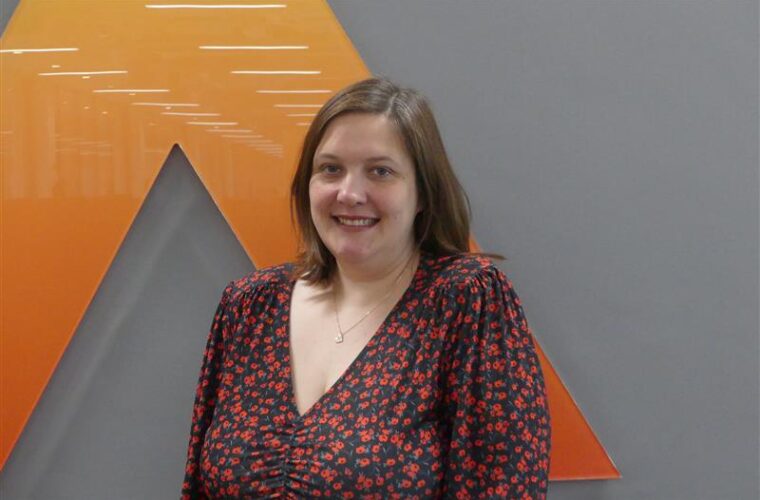Women in Tech: The technology industry in South Korea is highly male-dominant. A 2019 survey from the Korean ministry of science and technology shows that only 29 per cent of people who work in software or digital content development are female. Reports also indicated that female tech workers get paid less than their gender counterpart peers, earning 60 to 70 per cent of their salary even though they work in the same positions.
Nevertheless, women’s interest in the industry is higher than ever in the country. The number of female computer programmers and developers increased from 5,900 in 2018 to 6,500 in 2019, and in 2021, the share of female engineering college graduates surpassed 25 per cent for the first time in history. People with no experience or background knowledge of tech also enrol on extracurricular academies, hoping for a change in their careers. Still, the journey of having a tech job can seem vast and boundless if they don’t know where to begin.
Kim Seon-Ja, who now works as a front-end developer, also didn’t major in computer programming when she was in college. Kim was in her 30s when she started learning computer programming at a boot camp, a short-term learning programme for people who need a foundation in this field. Before entering the tech industry, she worked as a flight attendant for five years.
“I always loved to study languages,” Kim tells 4i Magazine. “We say computer programming is also a language, which intrigued me to try studying it. I started with learning JavaScript, then completed projects in the boot camp. I sometimes stayed up late at night to do them, but I enjoyed the study overall.”
Lee Su-jin, who worked as a project manager until recently, studied a different major than technology. A math and science enthusiast, Lee wanted to keep her feet on the ground in tech-related fields and started her position as a project manager, overseeing all projects, including technical writing, designs, and marketing promotions.
“It was a coincidence that I joined the tech industry,” Lee recalls. “I first joined my company as a marketer, then repositioned to a project manager. It is a position where you must actively communicate with the developers to make the best version of your products, so I also had some challenges at the beginning. I started to feel confident about what I do as I continued studying (such as computer programming) outside of my work, too,” she says.
Surviving in the Tech Industry as a Female
Kim and Lee both agree that there are fewer female workers than males in the tech industry and find the reason in the country’s socioeconomic landscape.
“It’s simple – when there is a lower number of female students studying tech, the number of female workers will be lower,” Lee says. “The pressure you feel from studying a male-dominant major among your male peers at a college is not neglectable. This pressure continues even after you (graduate from your college) and find a job,” she reiterates.
Lee adds it is, therefore, difficult to find female senior employees in the tech industry who kept their jobs despite the “pressure”. “Juniors will not have a role model to look up to (if experienced workers quit), which then creates another vicious cycle,” she says.
“The older generations of this country used to think tech jobs are for men,” Kim says. “When they thought of studying ‘technology’, the first thing that came to their minds was operating heavy machinery, which was traditionally thought to be a man’s expertise. Females thus had fewer opportunities to pursue tech-related careers,” she explains.
There is an array of gender-biased prejudices that female tech workers face while working, too. For example, when one developer introduces herself as a “developer”, many might think that she is a “front-end” developer who builds the user interface rather than a “back-end” developer who takes care of data or servers. “We say that working conditions for women in tech have improved over the years, but some minor challenges still exist,” Lee concludes.

A Group Dedicated to “Women Who Code”
For those who want to broaden their horizon of careers in the tech industry and jump into a community of female tech workers, Kim and Lee have been working as organisers of the South Korean edition of the Women Who Code (WWC).
The international, non-profit organisation was first made in 2011, and its Korean branch, dubbed Women Who Code Seoul (WWCS), was founded in April 2018 and now has more than 2,200 members on its Facebook group. The primary goal of this organisation is to empower and inspire women who are in technology careers. It offers various events and services for its members to level up their careers, such as conferences with a panel of female tech workers, regular newsletters, and insightful articles on its social media channels.
Of all events, WWCS’s first and most remarkable event was the “First Half of the Year Special“, which was held in June this year. The organisers invited experts and professionals from the industry to share their insights during the one-day online event.
The organisation first expected 30 to 50 participants to come but ended up having almost 200 people on the day and dropped the curtain with great feedback.
“Most participants were people who are interested in joining the tech industry or new hires,” Lee says. “We covered a wide range of topics, from how to use LinkedIn to what to expect when you work as a junior software developer. It must have been a fruitful experience for people who wanted to learn more about the industry.” Kim adds that the event was suitable for people from diverse career backgrounds to gather and exchange their knowledge.
“As an organiser of WWCS, It feels amazing to share what I know with people who want to learn more about tech,” Lee says.
“It’s Okay to Have Courage”
Two women say entering the tech industry does not require a particular qualification from anyone. Their age, previous experiences, and backgrounds don’t matter to start the grand expedition to a new career path. But what they do need is “courage”.
Lee says she has met many people, “especially women”, who feel unconfident when they cannot satisfy all qualifications written on job descriptions of positions they want.
“They sometimes don’t apply for the positions because they think they are less competent than those who qualify all the values in the descriptions – but they should. There’s nothing to lose from applying for a job,” she says. “People say that the tech industry’s entry barrier is too high for those who don’t know about the industry that well. However, I think even the workers now had joined without a full understanding of what they have signed up for.”
Kim agrees that aspiring tech workers would have to study hard, but their efforts can be rewarded in the end. “When it is their first time studying tech, of course, there comes the point where they feel frustrated by what they don’t know,” Kim says. “But someday, there will be rewards, like a new job or a promotion.
“I want everyone to have courage and carry on with their dreams,” she says.



